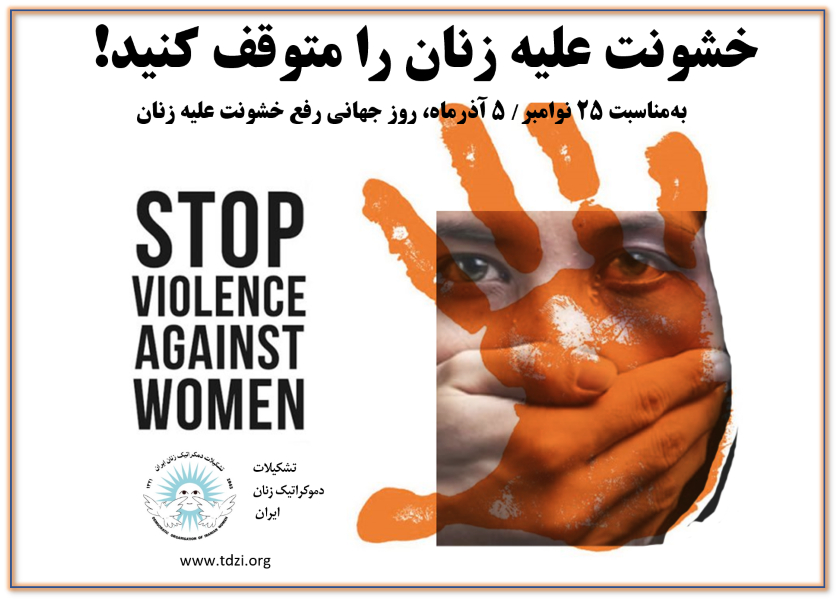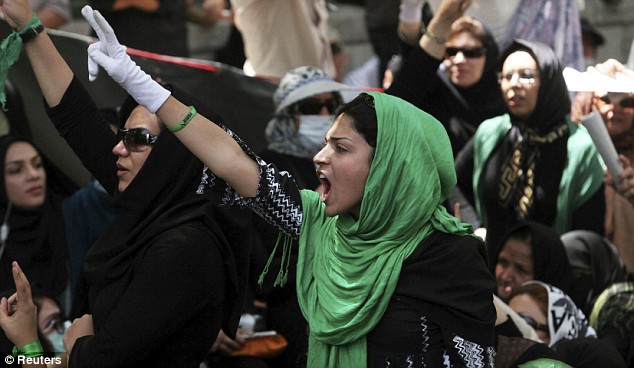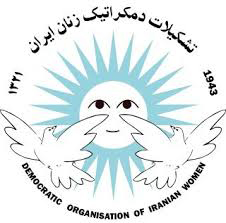
The International Day for the Elimination of Violence Against Women, which is held on 25th of November commemorates three Mirabal sisters, who were tortured and killed in 1960, by the Dominican dictator, Rafael Trujillo. We approach this date while COVID-19 pandemic has claimed the lives of nearly one million people world-wide, as neoliberal policies continue to undermine the infrastructures that support public health, and access to free health care at the time of need for the sake of their profits. In Iran, coronavirus has had a devastating impact on the ordinary people, especially the poor and women.
Women workers, heads of households, such as informal stall holders, cleaners, child miners, nursery teachers, hairdressers, hotel cleaners, and worker in the dental and health field, have borne the brunt of the lay-offs and have been forced into the ranks of the unemployed, often having no access to unemployment benefit or the like.
Since the pandemic, 145,000 women have lost their jobs (ILNA news agency, 27th May 2020). The rise in poverty and unemployment are factors in exacerbating violence against women. There is little official data on domestic violence, unwanted pregnancies, and drop in women’s employment, all of which are connected to the impact of Coronavirus and families being forced to stay at home. Data published in the official sources and papers give an insight into the scale of the problem. IRNA, the state news agency, reported on 31 March 2020, Behzad Vakil Nia, the Director General of Counseling and Psychological Affairs of the Welfare Organization, stating that there was a threefold increase in the number of calls to the free helpline responding to couples’ disputes. The paper ILNA quoted the Coroner of the Province of Kohgilooyeh and Boyer Ahmad having recorded 362 cases of violence against women in a domestic environment, in six months since March, showing an increase of 7.42% (27th October 2020). The paper, Hamshahri, revealed (14th November 2020) that students from poorer families have to rent mobile phones or tablets (at prices they can hardly afford) in order to be able to access their education online. Suicides of 6 pupils in the city due to poverty, led Asre Jonoob news network to report the Head of Education in the city of Ramhormoz, stating ‘…of around 27,000 pupils in the city, at least 4,000 pupils were deprived of their education due to not owning a mobile phone.’ The Head of the Welfare Organisation in the city of Mashhad declared that: in the four months since the spread of Coronavirus, 1932 children have been reported to have been abused – a 7.7% increase from before, (ISNA News Agency 9th July 2020). The cases of domestic abuse against women had increased 15-fold, abuse of the elderly 5-fold, and the abuse of the disabled increased by a factor of 16. During the same period there were 5,240 cases of acute family conflict reported – 25 times the figure in previous years. The number of street children and those who are in the care of unfit guardians or no guardians has increased in the same period.
In the Islamic Republic where oppression is the norm of state rule and where violence against women has the backing of the law and religious jurisprudence which demands her obedience to her husband, violence is acknowledged only when in its most naked form, such as murder. Even then, not only do the medieval laws and the patriarchal relations which suggest that women are the property of men, not deter men from committing crimes against women, they even encourage them. The horrific murder of the young Romina Ashrafi who was murdered by her father is a case in point.

According to IRNA, 20% of the total murders that take place in Iran, and 50% of the domestic killings, are ‘honour’ killings, and annually between 375 and 450 such killings are registered in the country. Thousands of women are subjected to domestic violence ranging from rape and sexual abuse by relatives to abuse in the workplace and the wider society, which go unreported. Following the ‘Me too’ campaign the taboo of speaking out has been broken and more reports have reached the media. Iran is one of only four countries in the world that has not signed the Convention against Discrimination against women.
Women know well that their fight for their rights and an end to violence is one that must be joined by all the working people of the country in a struggle for the removal of the rule of Religious Jurisprudence and replacing it with a democratic and popular regime, with a new constitutional law based on respect for equal rights for all people, irrespective of gender, ethnicity, race and belief system.
Excerpt from the statement of DOIW
23 November 2020













 Posted in
Posted in 











